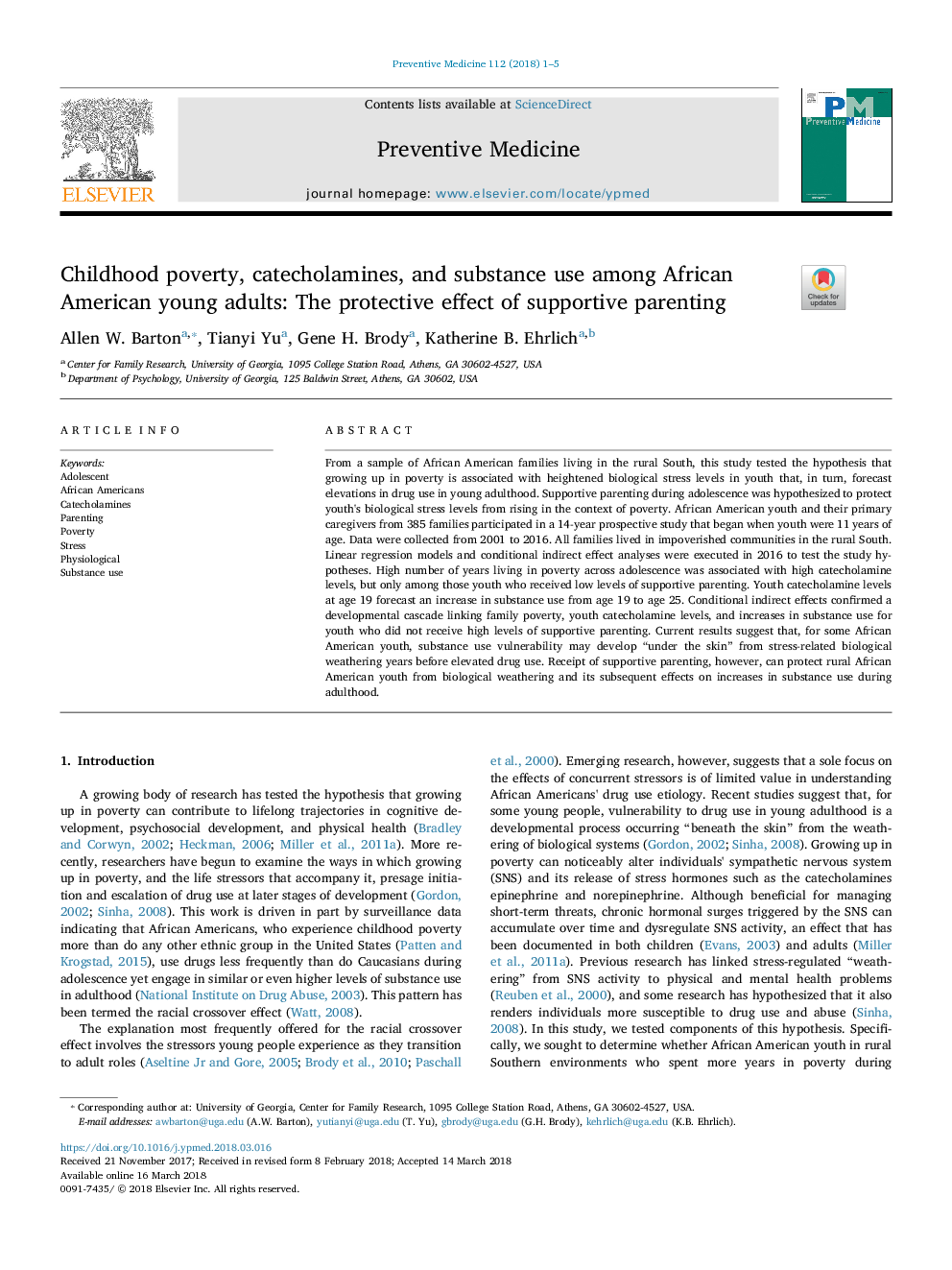ترجمه فارسی عنوان مقاله
فقر در دوران کودکی، کاتچول آمین ها و مصرف مواد در میان جوانان آفریقایی آمریکایی: اثر محافظتی والدین حمایتی
عنوان انگلیسی
Childhood poverty, catecholamines, and substance use among African American young adults: The protective effect of supportive parenting
| کد مقاله | سال انتشار | تعداد صفحات مقاله انگلیسی |
|---|---|---|
| 153955 | 2018 | 5 صفحه PDF |
منبع

Publisher : Elsevier - Science Direct (الزویر - ساینس دایرکت)
Journal : Preventive Medicine, Volume 112, July 2018, Pages 1-5
ترجمه کلمات کلیدی
نوجوانان آفریقایی آمریکایی، کاتلولامین ها، والدین، فقر، فشار، فیزیولوژیکی، استفاده از مواد،
کلمات کلیدی انگلیسی
Adolescent; African Americans; Catecholamines; Parenting; Poverty; Stress; Physiological; Substance use;

